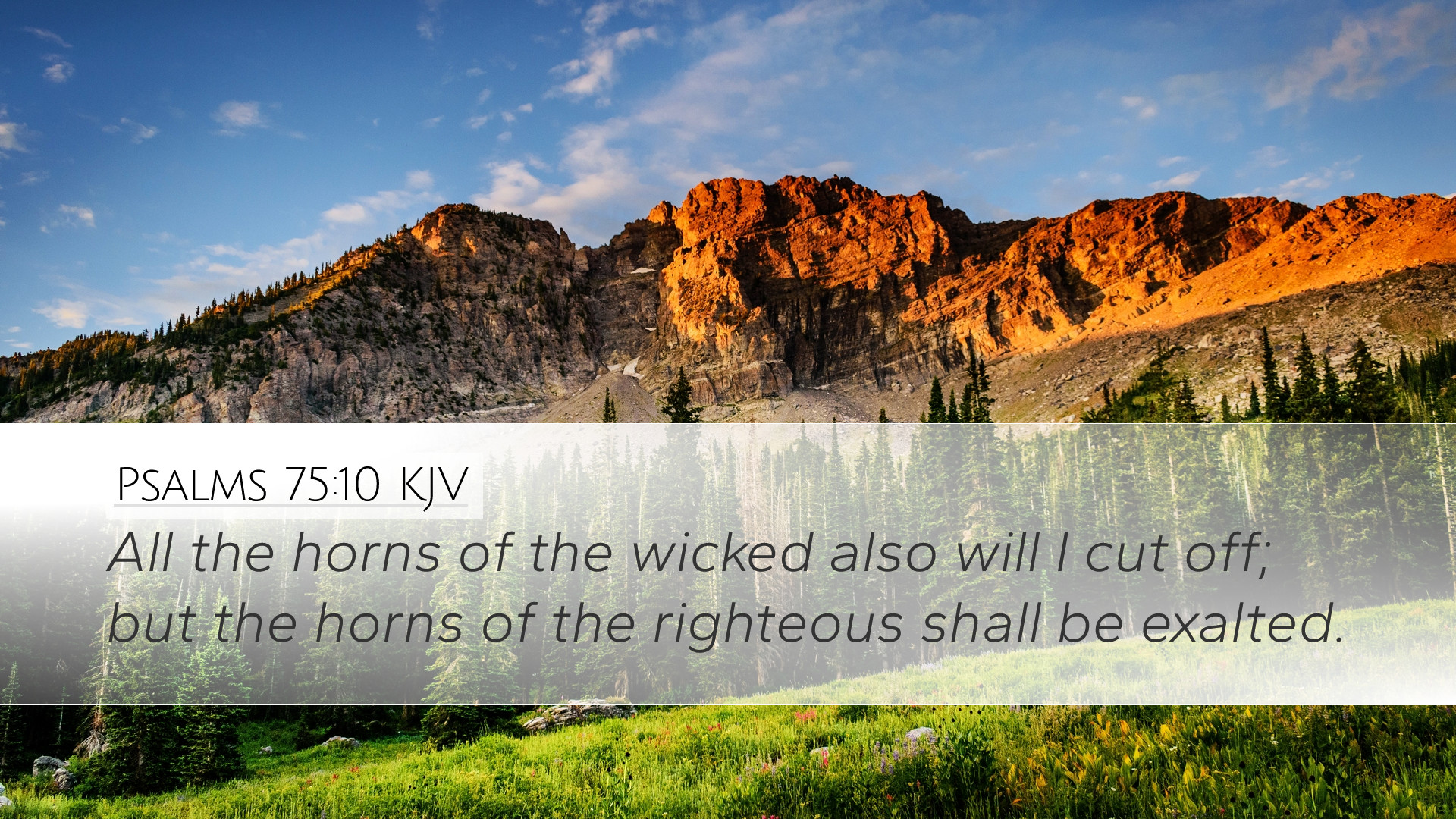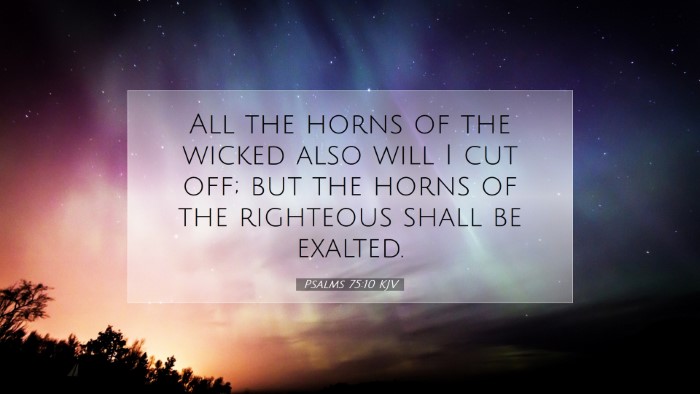Psalms 75:10 - Commentary and Insights
Bible Verse: "All the horns of the wicked also will I cut off; but the horns of the righteous shall be exalted." (Psalm 75:10, KJV)
Introduction
This verse from Psalm 75 encapsulates a profound theological assertion regarding divine justice and the ultimate fate of the wicked versus the righteous. It serves both as a warning and an encouragement, echoing the overarching themes found throughout the Psalms and the prophetic literature.
Verse Analysis
The imagery of "horns" in this passage is significant. In biblical literature, horns often symbolize power, strength, and authority. The cutting off of the horns of the wicked suggests a divine intervention that removes their power and influence, while the uplifting of the horns of the righteous indicates God's favor and blessing upon them.
Matthew Henry's Commentary
Henry notes that the metaphor of horns represents pride and power. The congregation of Israel was reassured that God would dismantle the arrogance and dominion of the evil. Henry emphasizes the certainty of God's judgment, stating that the wicked might appear to prosper for a time, but their downfall is inevitable when the Lord acts. The promise given to the righteous reflects God's active support and elevation of those who walk in His ways.
Albert Barnes' Notes
Barnes expands on the theme of divine retribution, underscoring that God's justice will ultimately prevail. He articulates that the horns of the wicked will be cut off as a sign of their complete and utter defeat, thereby highlighting the transient nature of wicked power. In contrast, the righteous, who rely on God's strength, will experience honor and exaltation, suggesting a reversal of fortunes that is characteristic of God’s dealings with humanity.
Adam Clarke's Commentary
Clarke interprets the passage within the context of Jewish history, reflecting on moments when God intervened against oppressors and enemies of Israel. He emphasizes that this verse can be viewed as prophetic, foreshadowing the ultimate triumph of God's people through Christ. Clarke suggests that the horns of the righteous represent their authority and victory, particularly in Christ, where believers share in the exaltation promised to them through His resurrection.
Theological Themes
- Divine Justice: The text serves as a profound declaration that God is not indifferent to injustice. His active role in elevating the righteous while dismantling the wicked's power points to a relational God intimately involved in human history.
- Faithfulness of God: For those experiencing oppression, this verse affirms that God's promises endure, particularly for those who maintain faith amidst trials. It encourages believers that no situation is beyond God's redemptive capability.
- Contrast Between the Righteous and the Wicked: Highlighting this dichotomy serves to instruct believers on the moral implications of their lives, encouraging them to pursue righteousness and embody the characteristics of God’s kingdom.
Practical Applications
The insights derived from Psalm 75:10 are valuable for pastors, students of the Word, and theologians alike. Here are some applications:
- Encouragement in Trials: When the wicked seem to prosper, believers can take solace in the promise that God will ultimately rectify wrongs and lift the humble.
- Call to Righteousness: The call for personal and communal righteousness resonates strongly—believers are motivated to pursue justice, integrity, and truth in their lives.
- Hope for Justice: In the face of societal injustices, this verse can inspire activism grounded in faith, reminding believers that true strength comes from the Lord.
Conclusion
Psalms 75:10 encapsulates the essence of God's commitment to justice and the exaltation of His people. The combined insights of commentators such as Matthew Henry, Albert Barnes, and Adam Clarke enrich our understanding of this verse, providing a holistic view of the implications of divine judgment and the hope offered to the righteous. In studying this passage, believers strengthen their faith in God’s ultimate authority and experience assurance amid life's uncertainties.


